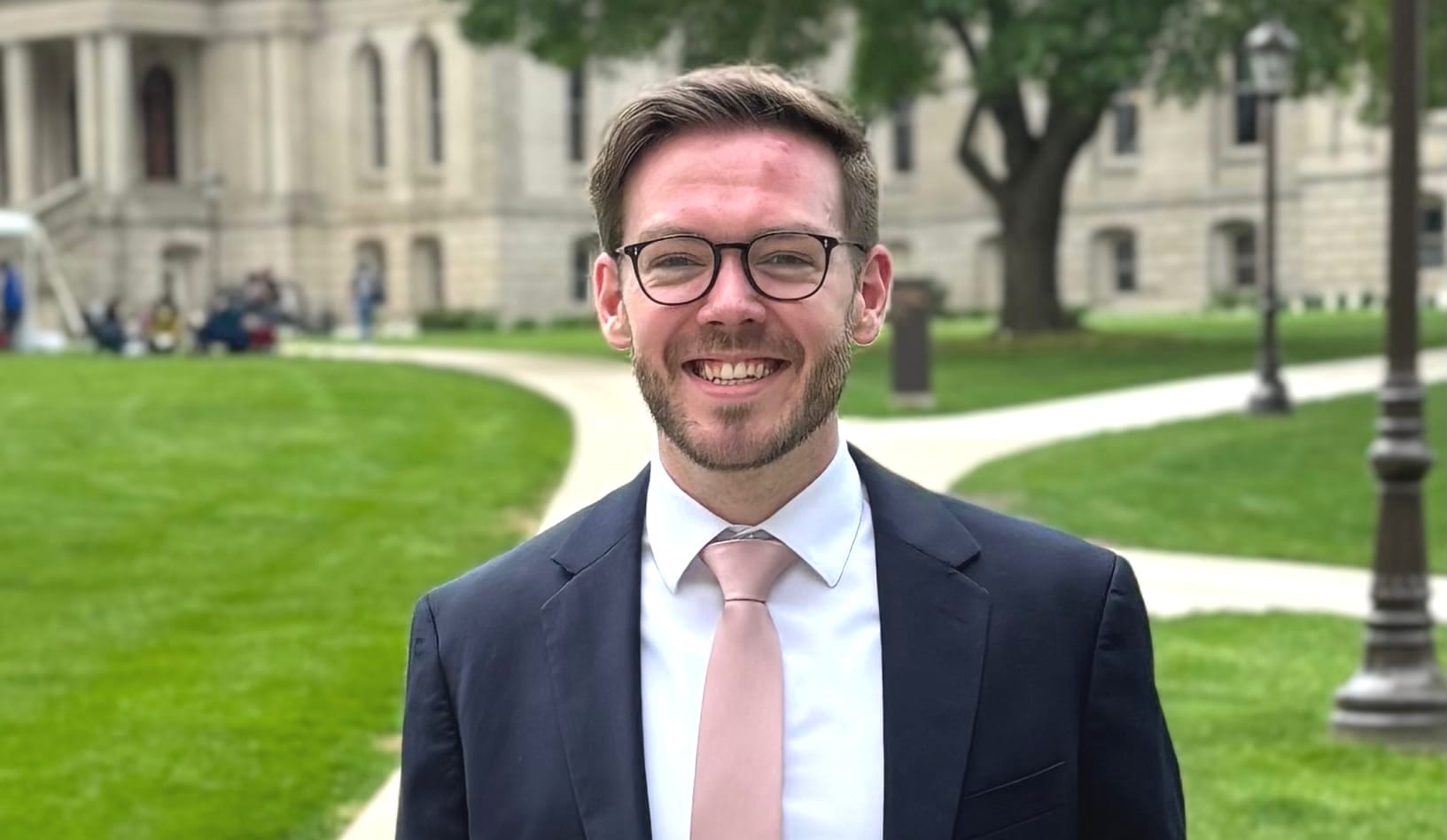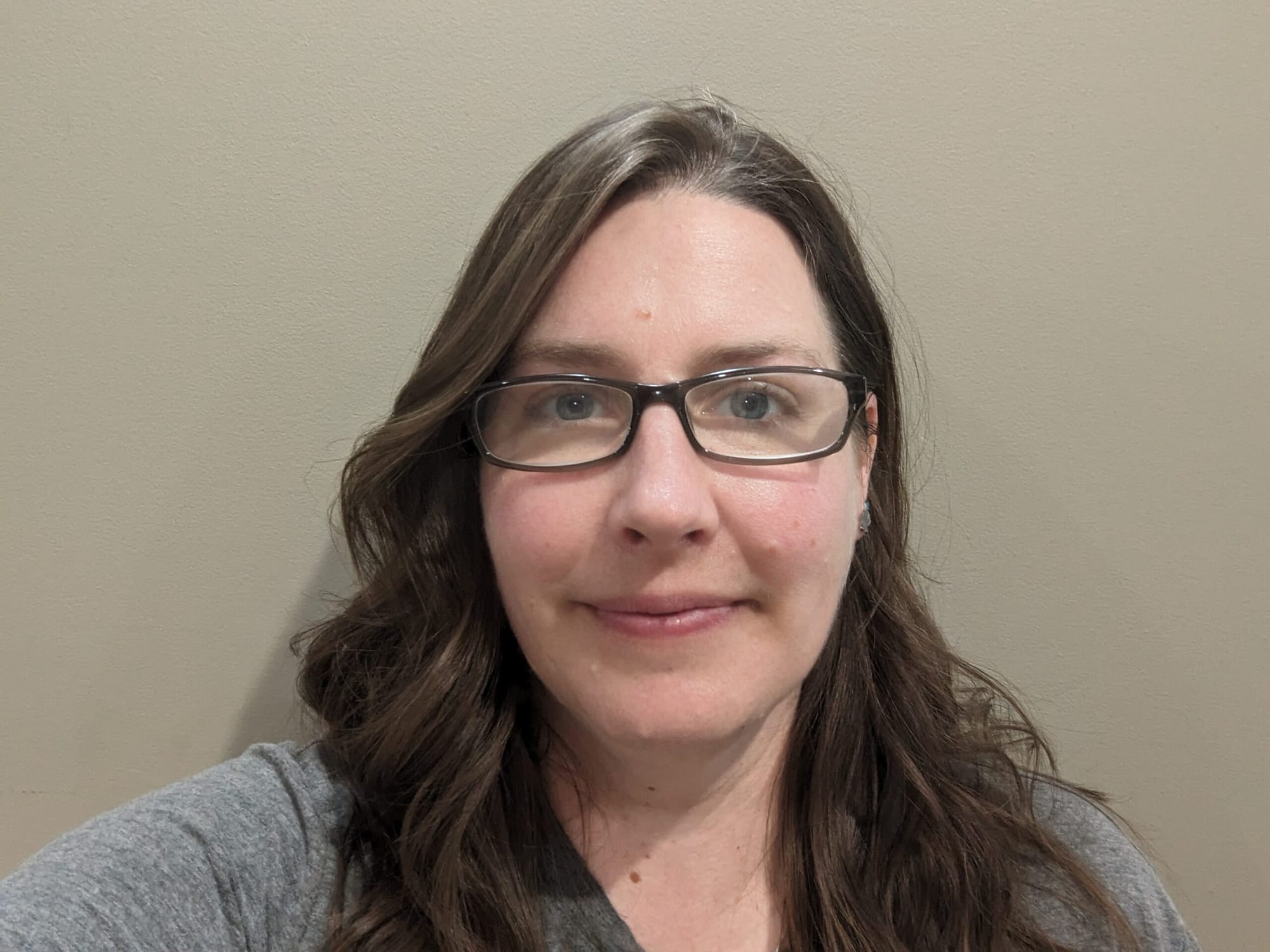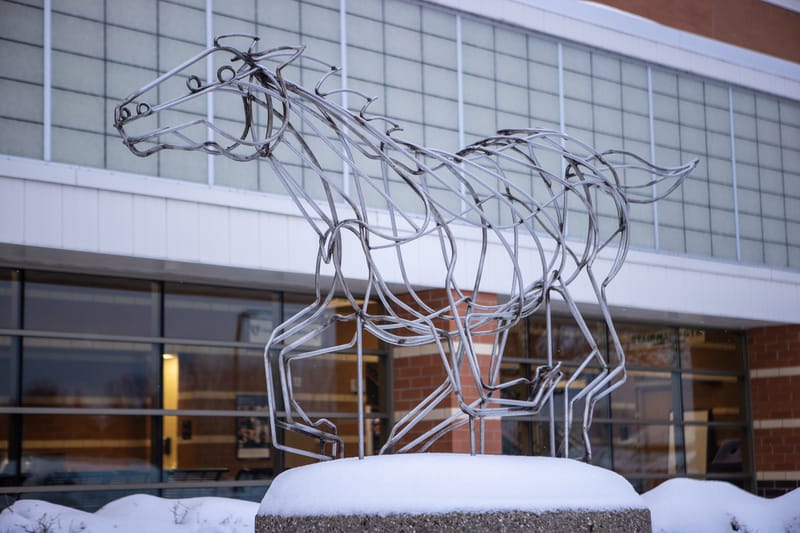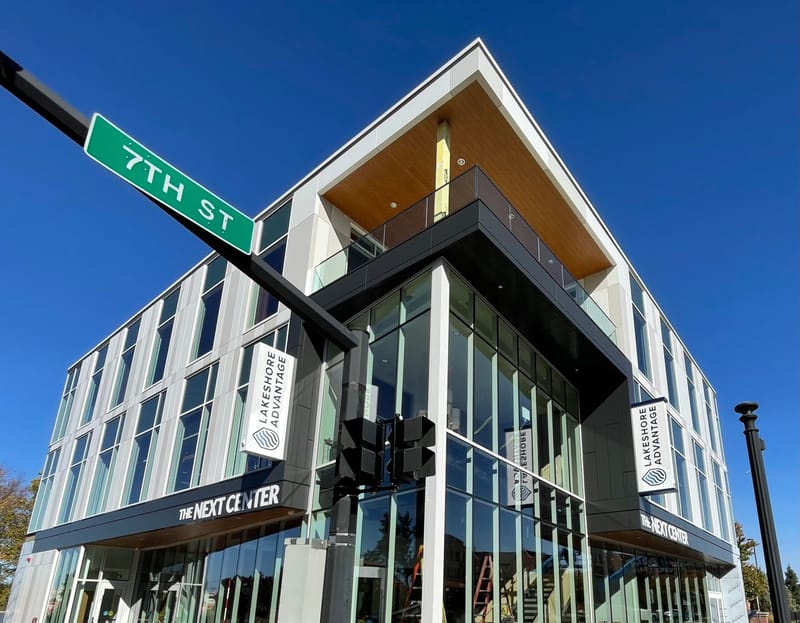Joseph McClusky on state seat run as Ottawa Democrat: ‘We can and we must do better’
Joseph McClusky is running for state representative because he believes Holland is ready for a new form of government representation.
HOLLAND — Joseph McClusky is running for state representative because he believes Holland is ready for a new form of government representation.
“I'm not running to make Holland something that it's not. I'm running to bring forward the Holland that I know to be true and that I've seen over my time here,” he said.
The 28-year-old Democrat has filed to run for the seat representing the 86th District in the Michigan House of Representatives. The district — which includes Holland and Holland, Park and Laketown townships — is currently represented by second-term Republican Nancy DeBoer.
Interest in politics came early
McClusky expressed an interest in politics early in life. The Burton, Michigan, native moved to West Michigan around 2015 and attended Hope College, where he earned a degree in political science and minored in philosophy and classical studies.
“I've been interested in politics for as long as I can remember,” he said.
His political journey, however, took an unusual path after his conservative upbringing.
His parents sent him to a Christian Baptist school, where the motto was “Training Soldiers for Christ.” When he was about 11, he recalled being confused that progressives could be Christians, too.
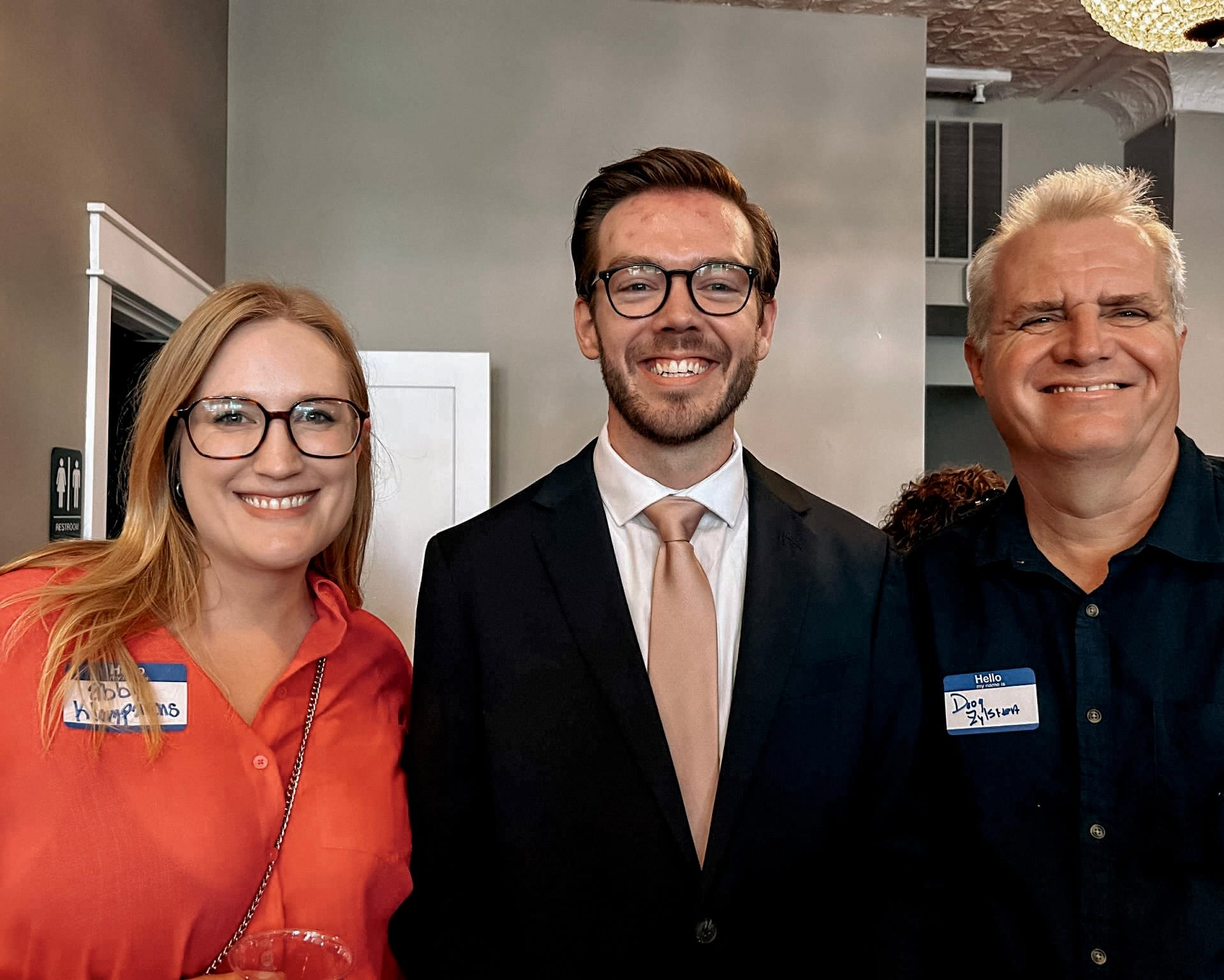
“I remember one morning, we were pulling into church, and I saw a car with an Obama sticker on the back of it. And I thought, ‘Why would they even be at church?’ Because I could not, in my head, even put those things together,” he recalled. “I think that's part of the frustration [now] … is Republicans don't get to have a monopoly on faith.”
A self-proclaimed “political nerd,” McClusky said he enjoyed attending campaign rallies for both political parties because he “thought it was cool to meet the candidates.”
There came a time when he was in college, however, where he felt doubts about his historically conservative beliefs.
“There was a moment when I got to Hope my freshman year, that I was watching the Republican primary presidential debate and two of my new friends were both international students, and the debate turned to immigration and immigrants, and I was faced with the question of, ‘How can you support that party that is saying those things about us?’ And I didn't have a good answer,” he said. “And so that sort of started this whole journey.”
He said it might surprise people that at Hope — a private Christian college — he was exposed to new people and perspectives.
“I know people think of Holland and Hope as super conservative, but this place actually opened my worldview a little bit,” he said.
During his freshman year, McClusky ran for president of the Hope Republicans; although he didn’t win the post, he continued to seek out experiences and events with both major U.S. political parties, and began to feel a fundamental shift within.
In 2016, he attended as a guest of the Michigan delegation to the Republican National Convention in Cleveland.
“At that time, I thought that I could still align with the party and just not with the candidate that they were putting forward, but I was there in the arena when they booed Ted Cruz off the stage for saying, ‘Vote your conscience,’ and I saw the party and the candidate become one, and I thought, if this is the way that they want to go, I don't think it's the right way.”
Still, he continued to seek out as many politically diverse opportunities as possible.
“In 2017, I went on a bus to [Washington,] D.C., with a group of students for the Women's March the day after Trump's inauguration. There were certain speakers at the Women's March where I was like, ‘Oh, I feel like a conservative,’” he said.
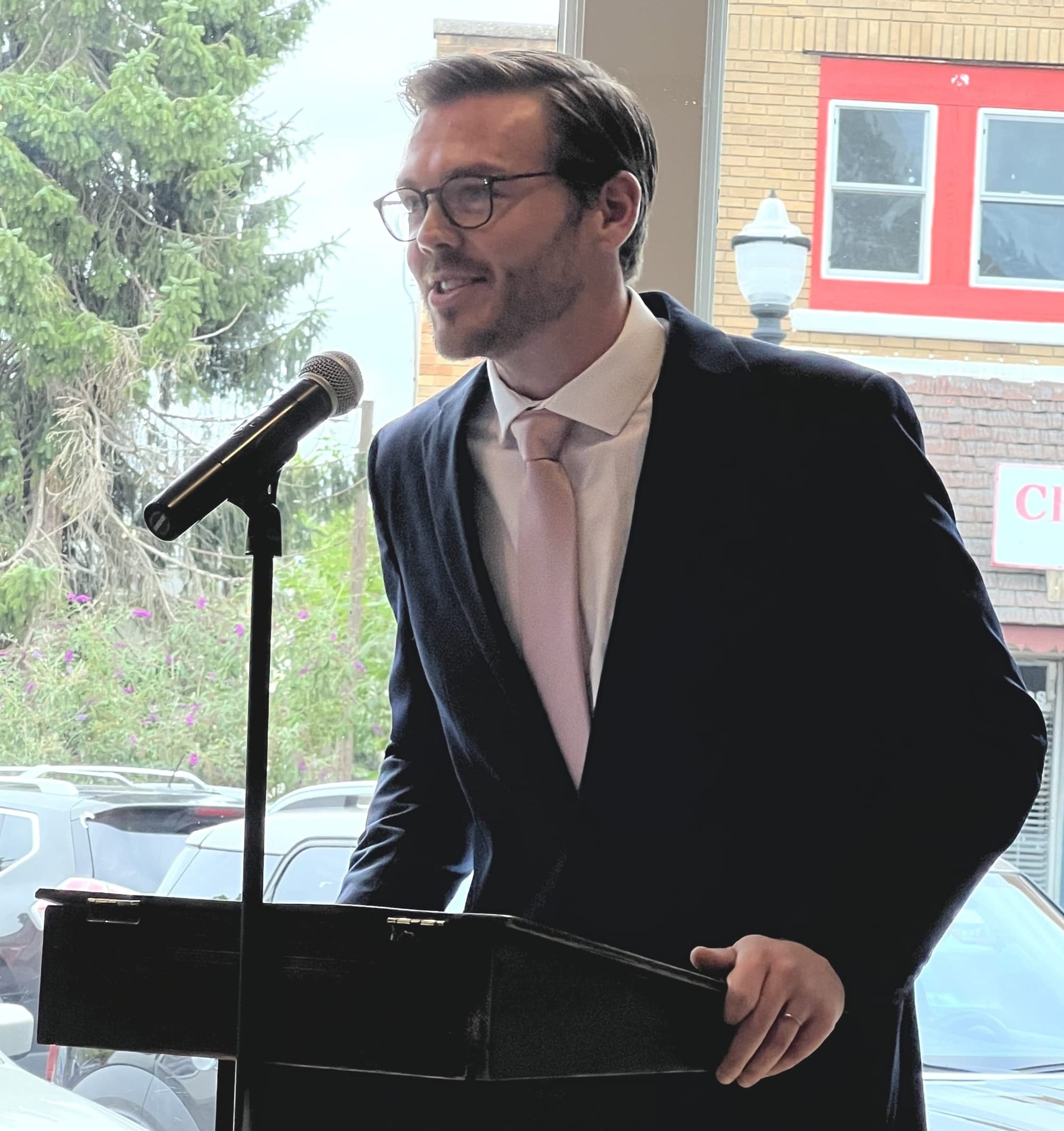
The next month, he attended the national Conservative Political Action Conference in Maryland.
“I go to CPAC, and there's a speaker that says, ‘Well, we can't just deport all of the immigrants here,’ and someone in the crowd yelled out, ‘Why not?’ And I'm like, ‘I'm definitely not here.’”
By the 2018 election cycle, he started to attend fewer Hope Republican events.
“The switch was not overnight,” he said. “There were a lot of these moments along the way that got me to this point.”
He said his political affiliation “really solidified” when he came out as gay during the first semester of his senior year at Hope, saying he felt the party didn’t welcome members of the LGBTQ+ community.
“Looking to the party that I had grown up in and supported … there's no space for me there,” he said.
“I think that is part of why I enjoy working in politics in this area, and why I've chosen to stay when there have been opportunities to go elsewhere — because even though I don't agree with a lot of the folks [of a certain] perspective anymore, I can at least understand where people are coming from, having believed that myself.”
From campaigns to candidate
After graduation, McClusky became more involved in the Ottawa County Democratic Party, helping progressive candidates with their campaigns, including Bryan Berghoef’s 2020 run against Bill Huizenga in the now-Third Congressional District race in the U.S. House. He also managed Democrat Larry Jackson’s state House race against DeBoer in 2022.
Then, he took a much-needed break.
“I needed a little bit of a break from politics after the 2022 cycle, but still wanted to be involved in the community, and so at that point, I worked at the Holland Museum as the development and communications associate director. But as the 2024 cycle got closer and closer, I felt that pull to get back into politics,” he said.
In the 2024 cycle, he worked for the Michigan House Democratic fund as the regional political director who worked with nine state House districts across West Michigan.
“I got to work with current members and candidates running, and got to know the policy a little bit more,” he said.
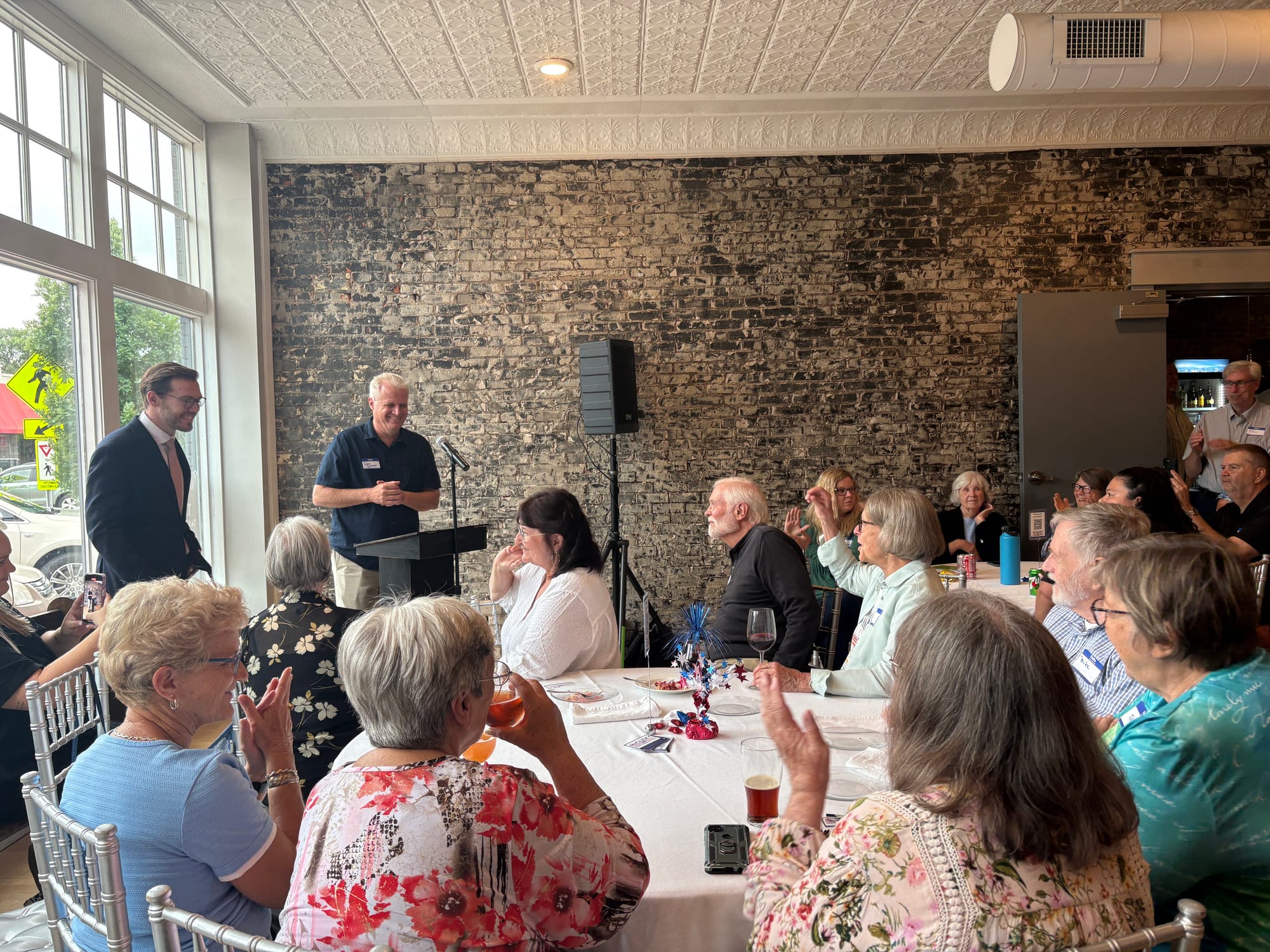
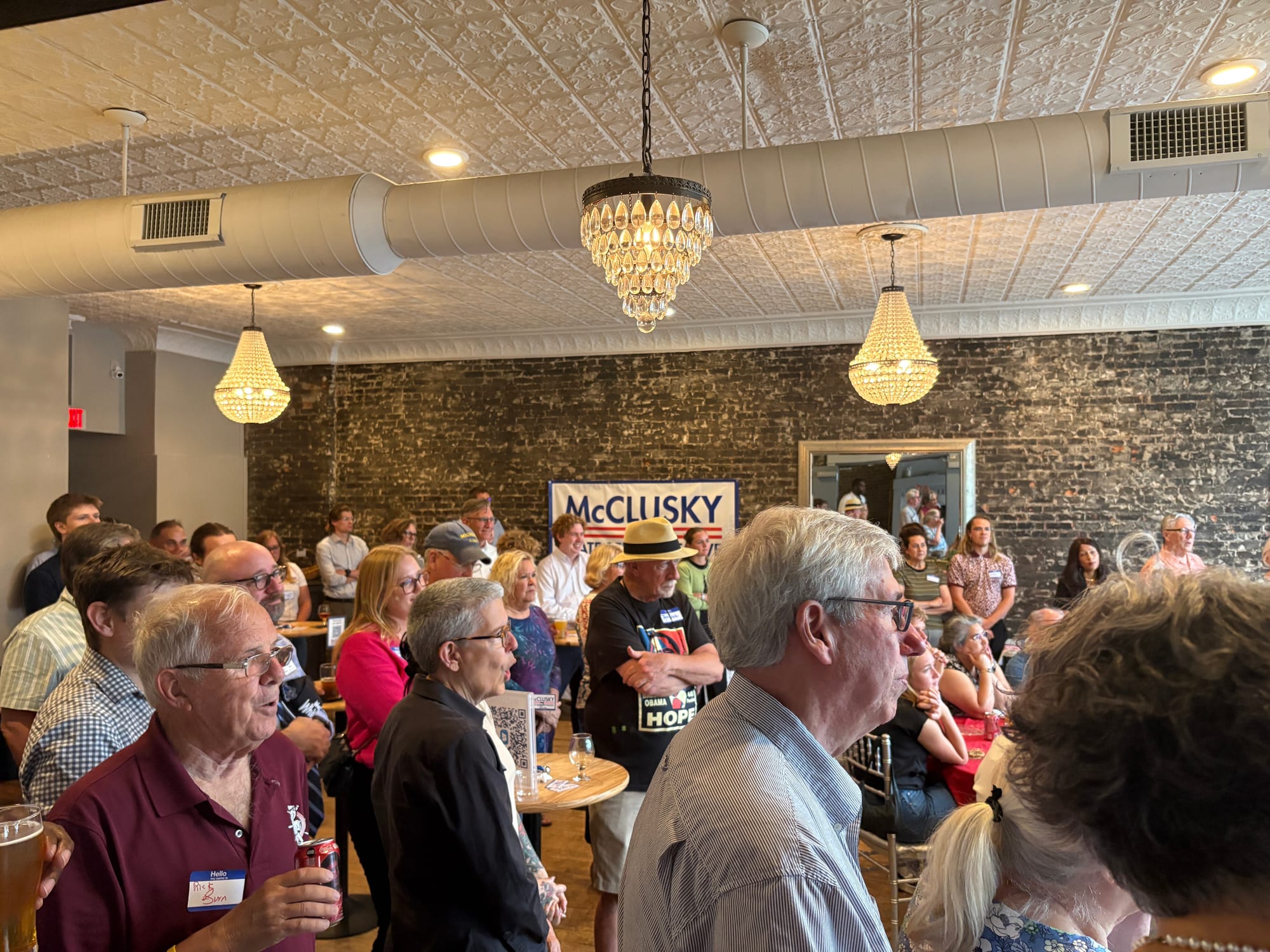
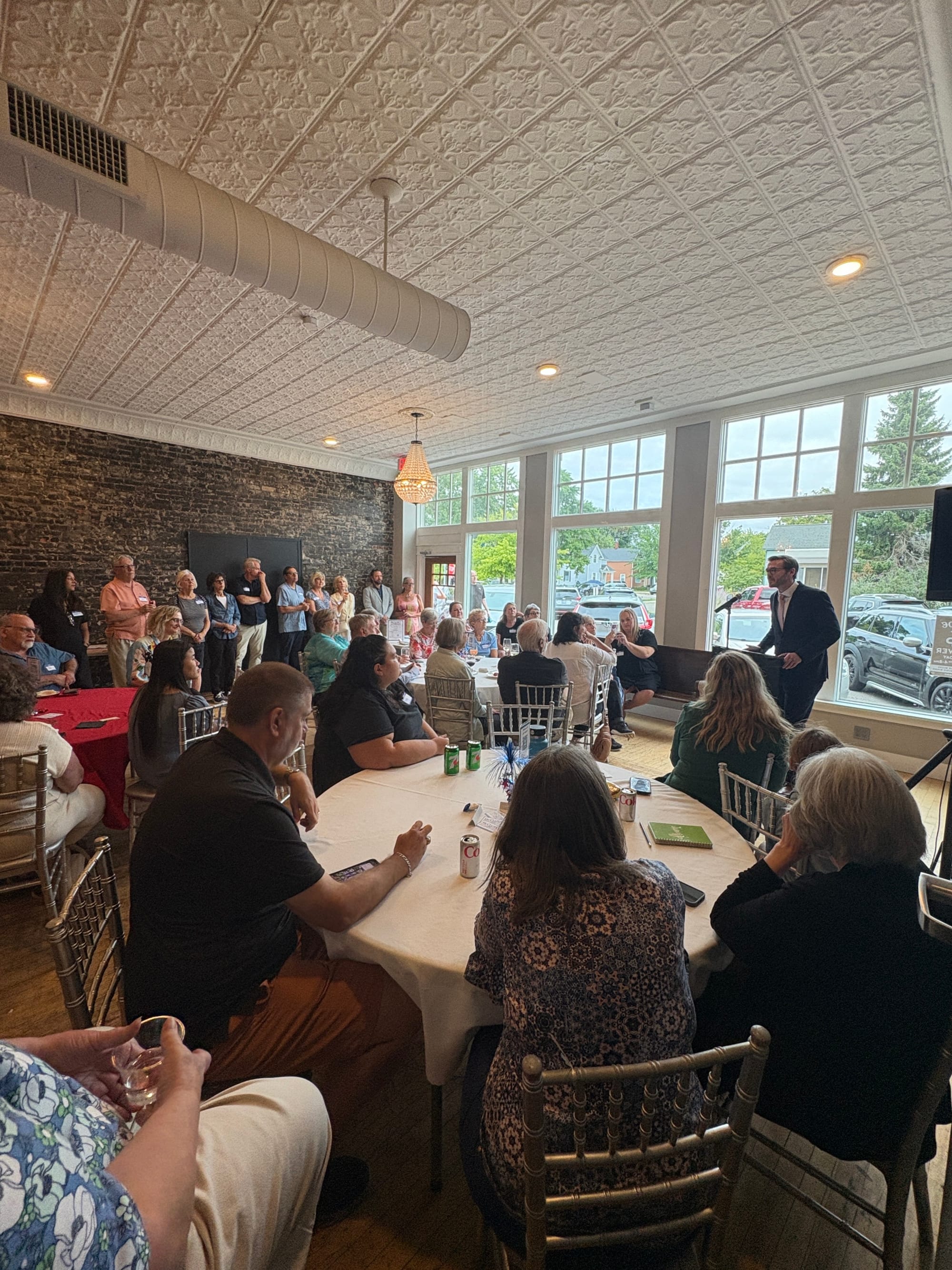
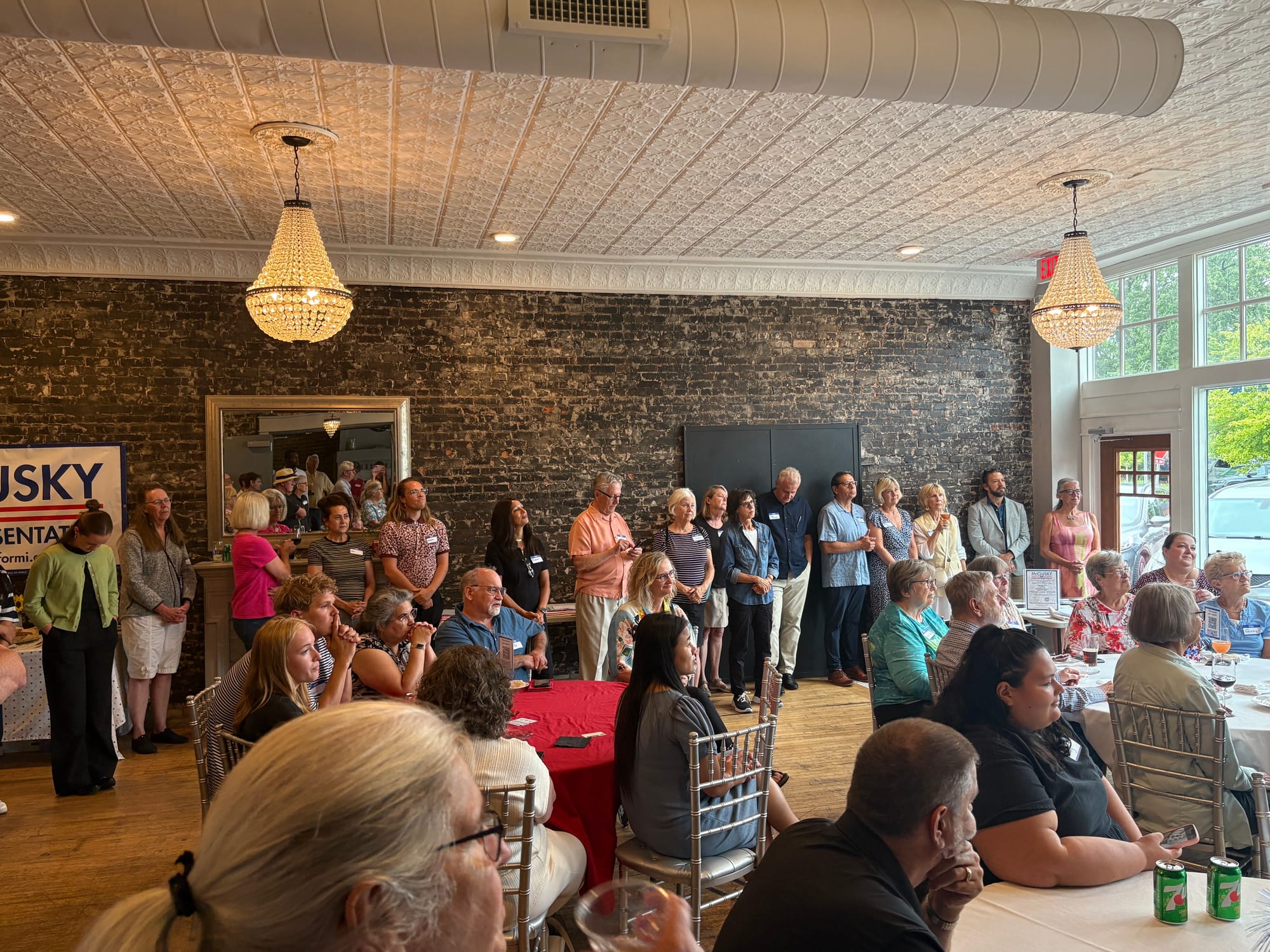
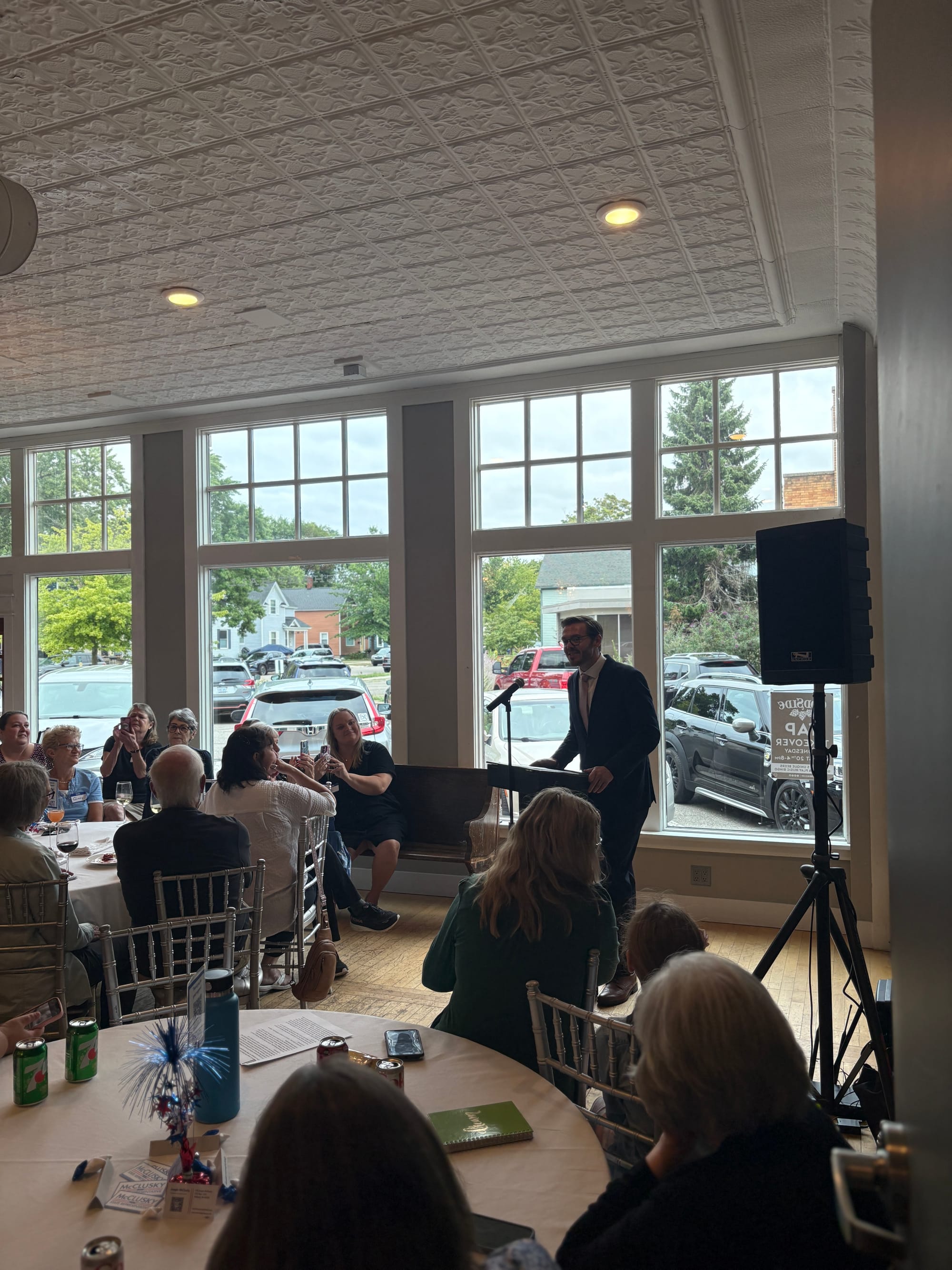
Joseph McClusky announced his bid for the 86th District in Michigan's House of Representatives on Aug. 11. [Courtesy]
He said it was never a goal to be a candidate, but he feels that his political pedigree helped inspire him to run.
“I've been doing a lot of the work behind the scenes on campaigns, and it wasn’t a goal to run for office, but I've always said if I feel like I have something to offer, if I feel like I have something to say for the community, that I'll step up and run. … After having recruited candidates to run, sometimes you have to take your own advice,” he said. “I think folks are ready for something different, some better representation, but you don't know until you actually do it.”
“It feels like it's been a long journey, but I look back and — it wasn't that long ago — but to see that sort of shift, and it sort of happened in parallel to the shift that's happened here in Holland over the last 12 years.”
He pointed to a progressive political shift in Holland-area voters over the past several statewide and national election cycles, pointing to the 2022 midterm election, where Democrats Gov. Gretchen Whitmer, Attorney General Dana Nessel and Secretary of State Jocelyn Benson all won re-election, as well as the district voting in favor of Proposition 3, which enshrined abortion rights into the state’s Constitution.
In 2024, Donald Trump won the 86th by less than a quarter of a point, McClusky said.
“So, just looking at those numbers, what kind of representative do you expect to be in a district where it's 50-50? And then you look to our current representative … and just something isn't adding up there.
“The city has shifted 18 points to the left, so I think this is kind of a unique experience that a lot of our Democratic candidates in the past haven't been able to talk about because that's not natural to them,” he said.
He pointed to when DeBoer served in Holland city government from 2005 to 2019, when she opposed the city adopting a non-discrimination housing ordinance. In 2011, as a city council member, she voted against an update to include protections for members of the LGBTQ+ community in Holland's anti-discrimination ordinance.
The city eventually adopted the changes in 2020 — after DeBoer was no longer on the council.
“The city made a very clear statement that she no longer represented them,” McClusky said of DeBoer’s views. “I just feel that folks are ready for something different, and, again, having worked on the other side, working alongside current state reps, I've seen the kind of things that they come back to their districts and say that they deliver.”
“We passed one of the most sweeping non-discrimination ordinances in the state right here in Holland. That was only after new leadership was elected,” he said. “And so, I just always go back to that. … You tell me you're a conservative. What is it that you're conserving? Does that thing exist? And who is included in what you are trying to protect?
“From my perspective, what she's conserving is a Holland that no longer exists, a Holland that is constructed in her mind — and I think that's just really holding us back. I don't think that view represents who we are right now, and it certainly doesn't represent the trajectory we're on.”
McClusky noted that a huge proponent of expanding the Elliott-Larsen Civil Rights Act — a Michigan law passed in 1976, that prohibits discrimination in areas like employment, housing and public accommodations — was championed by former Republican state Rep. Jim Dressel.
Dressel, who represented the state’s 95th District — which included parts of Ottawa and Allegan counties at the time — from 1979 to 1984.
“I am a huge history nerd. I love political history. I'm surrounded by posters and buttons and books from previous campaigns. It keeps me grounded in this work of these campaigns — to know that there are so many people who have come before fighting for their values and often never even saw the fruit of their work,” McClusky said.
He said Dressel sponsored a bill to add gay and lesbian citizens to be protected by Elliott-Larson.
“Right here, from Holland,” McClusky said. “He was primaried the next year and lost. He went on to work in Lansing with the Michigan Civil Rights Association. I found an interview that he did later on in life, and the interviewer noted that he was extremely anxious in the interview. At that point, he was dying from complications with AIDS, and he didn’t know if anybody would take up the mantle of adding or expanding the Elliott-Larson Act.
“And he passed away in 1992 and is buried here in Holland. But to think if he, as a Republican in 1983, was willing to stand up and say, this is something that I believe in. And yet, 40 years later, our representative in the same area votes not to expand Elliott-Larson? I have a hard time with that.”
He said he views the work in the Legislature as actively advocating for constituents and constantly working to achieve a shared vision.
“It's not just a representative that shows up to cut a ribbon or to take a photo with someone,” he said. “We want a representative who is there — actually advocating for the people and the district here. And part of my view is, if you say that you're going to stand up for the community, you have to be willing to stand up to anyone and anything that gets in the way of that — even if it's your own party.”
He said he feels like his personal experiences will appeal to voters in the 86th. At his Aug. 11 launch party at Holland Brew Merchant, he said he found the conversations with supporters encouraging.
“There was a woman that came up to me and she said, ‘I've lived here for 25 years, and I never imagined being in a room like this in Holland. And that's taken cycles and cycles of work. … I think people walked out of there feeling a little bit more hopeful than when they walked in. And I hope in this campaign — while we're fighting for our values and fighting for what we believe to be right — people see it as just a little ray of light in this darkness, and reminds them that we still have the power to stand up and say that we can do better."
He said one reason he stayed in politics in West Michigan is his personal journey, which he thinks will resonate with voters.
“When I first got interested in politics, there was no question that it was going to be in the Republican Party, and with Donald Trump coming on the scene, I had to ask myself, ‘Is this party that is rallying around this man, that I believe represents the exact opposite of the values that I was taught as a kid … is that the direction that I want to go in?’ And I think there are a lot of people in this area who are on a similar journey, and I think that's more representative of the city of Holland.”
He said he would like to see more candidates who have multi-perspective experiences, which would help improve what has become a hostile national political landscape.
“I think we need candidates who can say: ‘It's OK to change your mind and create that permission structure.’ Even if folks voted for Trump in 2024 and now they're like, ‘This is not what we wanted,’ or they voted for Nancy DeBoer and they're like, ‘I don't even know what good a Republican majority in Lansing is.’ … I obviously would have made a different decision in 2024 based on the information that was available, but we shouldn't beat them over the head with that.
“What's done is done. But if people are like, ‘You know what? This just doesn't feel like it's lining up with the values that I felt.’ That's OK. There's room for those folks here. I've been on that journey, too.”
A platform focused on ‘fundamentals’
McClusky said his campaign will focus primarily on a return to what he calls “fundamentals” in state government.
He pointed to the current Legislature’s inability to pass a budget for the next fiscal year — the deadline was July 1.
“Back in January, I attended Rep. DeBoer’s coffee hour just to ask questions as a constituent and see what were the priorities of a Republican majority in Lansing. … I continued to go and I was asking, ‘What is your response to these cuts at the federal level? Obviously, you are a state legislator, and you can't control what happened at the federal level, but are you at least, or at all, concerned about how these might impact the state?’ And there was no concern whatsoever.
“I asked: ‘Are we going to have a budget on July 1?’ And the answer then was, ‘From what I'm hearing, it's going to be September.’ So I said, ‘Can you see how people might be concerned that you were so quick to pass an emergency plan in February or March, and then you're going to blow past a July 1 deadline?’ And it didn't seem to really click,” he said.
"I hope in this campaign — while we're fighting for our values and fighting for what we believe to be right — people see it as just a little ray of light in this darkness, and reminds them that we still have the power to stand up and say that we can do better.”
McClusky said, if elected, he would like to focus on basic things like affordable housing and food, and for families to be able to afford higher education.
“I want to make sure that people can afford to put food on their table, that they can afford to put a roof over their head and keep it … that at the end of the month they still have a little bit of money left over to put away for a vacation, or some sort of savings funds … that when they send their kids to school, they not only get a good education, but they know that they'll come home safe when we step outside … that we know that the air that we breathe is clean and so is the water,” he said.
He said so much dissonance has happened at the national level that it’s more critical than ever to focus on state and county-level government and the local control they have, noting the recent two-year majority of far-right political group Ottawa Impact on Ottawa County Board of Commissioners.
“We've seen what happens here at the local level, at the county level, and I feel that the state Legislature is sort of in between there, and it's going to become the next sort of battleground to take over,” McClusky said. “I think the president has been clear about sending things back to the states. So, when we get around election time, it's going to come back to the state legislatures. We saw how this community responded at the county level. Hopefully we can get that sort of response preventively before we need it here at the state House.”
He said his approach is simple for voters: “What do you want to see from your government?”
“I think that's a question we could ask everybody,” he said. “It doesn't just have to be young people, but what do you want to see from your community? What do you want to see from politics? What do you want to see from your government? And how do we come together and build that? That's the conversation I hope to have, because there's no going back to something that existed before. We have to have the conversation of: How do we want to rebuild?”
He said government and politics “can be so much more” if voters demand it and candidates deliver.
“We are missing the very survival aspects of what this can be. I believe in a politics and a government that can help people thrive, but if we are slashing all of these things, we have to at least get back to that level where people can survive,” he said. “It may sound basic, but if we are not getting that, we're never going to be able to get to all of our hopes and dreams.”
He said the youngest voters who will be in play in 2026 have “only known a political system where Donald Trump is a central figure,” and said it’s not hard to believe that many are disenfranchised and disengaged.
He said this is the time for them to be inspired to make change.
“That’s how I view this campaign,” he said. “It is more than just being a Democratic name on the ballot. I think this is not just building a campaign, but building a movement … building a community of people who feel like they can stand up and say, ‘enough is enough.’
“We can and we must do better. And it’s time we elect somebody who's going to enact some real, meaningful change in Lansing,” he said.
One thing McClusky will not compromise on is his faith, which includes helping his fellow residents and the community.
“I had a conversation with [DeBoer], where she shared her faith beliefs, and the very next week she voted for a school aid budget that eliminated free breakfast and lunch. And I just feel like, if that's going to be our standard, I don't want to be on the side that says, ‘When did we see you hungry and not give you food? When did we see you as a stranger and not give you shelter? When did we see you naked and not clothe you?’”
As a political expert, McClusky said there need to be more representatives who are willing to have discussions, find common ground to advance goals for all and to bring back the concept of moderates in government.
His values, however, are not up for debate.
“I think part of this is compromise, but what I'm not willing to compromise is my values, and I think my political journey is evidence of that. I believed it when my Sunday school teacher said it's important to be honest, to have good character, to think about your reputation, to care about others, and when they taught me about loving my neighbor — I think they had a much more limited view of who the neighbor was — but I've grown to see that those values can also be expanded to include more people … even to know that those values can expand to include me. There was a point when I didn't even think I would be considered one of those neighbors, to be loved,” he said.
McClusky said his approach is “not about beating people over the head, but about bringing them along, meeting them where they're at, and having those difficult conversations.”
“I still believe people's minds can change. I've seen it in my own life. I've seen it in my parents’ life, and sometimes you can't do that over the course of the campaign, but I think on the broader scale, it's something that we should all be trying to do,” he said. “And it's not to change everybody's mind so they agree with us, but at least be honest and have those conversations. … I think that's huge in this environment right now.”
McClusky reflected back to his graduation from Hope in 2019 and the subsequent passage of the expansion of Holland’s non-discrimination ordinance when summarizing what he and his campaign is all about.
“That was my first big venture into politics in the city, and the way that I saw this community stand up for our neighbors, to stand up for our values of ‘welkom’ and see the people come out of the woodwork to stand in the way … that's the Holland that I believe in and that I know to be true,” he said.
He said it’s indicative of West Michigan’s continued evolution that is more practical and compassionate, while not losing the family values for which it’s known.
“So often people just haven't felt comfortable talking about it, [but] things are shifting,” McClusky said. “That's the Holland that is seeking representation, and seeking a voice in Lansing to represent not only who we are, but who we want to be in the future.
“I always keep saying people have fought for more difficult things in more difficult times. And I think the biggest thing is our values did not change from the day before the election in 2024 to the day after. What did change was the environment in which we are going to be advocating for them.”
Support Our Work
Ottawa News Network is a nonprofit news service dedicated to providing the residents of Ottawa County with trustworthy, community-driven news. ONN treats journalism as a public good — something that enriches lives and empowers Ottawa County’s 300,000-plus residents to stay engaged, make informed decisions, and strengthen local democracy. Please consider giving today.
DeBoer, 71, is eligible to run for the 86th House seat again. In 2022, Michigan law was updated to allow candidates to be elected as a state representative or state senator for no more than a combined total of 12 years.
Prior to her time in the Legislature, DeBoer served on Holland City Council from 2005 to 2015, then served two two-year terms as Holland’s first female mayor until 2019. She taught high school before getting involved in local government.
Learn more about McClusky and his campaign, visit his pages on Facebook, Instagram, X and TikTok.
— Sarah Leach is the executive editor of the Ottawa News Network. Contact her at sleach@ottawanewsnetwork.org. Follow her on Twitter @ONNLeach.a

